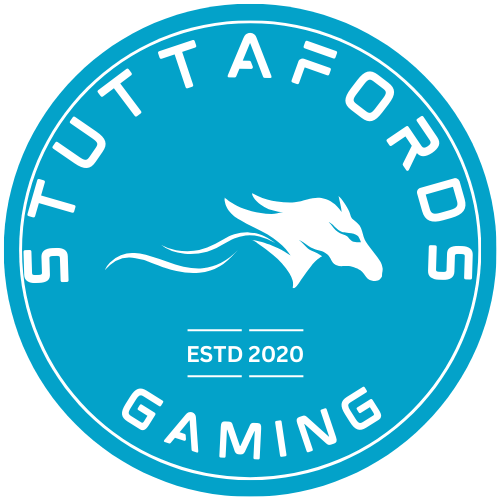High-stakes betting is more than just an adrenaline rush—it’s a sophisticated, high-risk financial endeavor that blends deep statistical analysis, psychological resilience, and bankroll discipline. Unlike casual gamblers, who often bet on gut feelings or loyalty to their favorite teams, professional bettors operate with a business-like approach, treating betting as an investment strategy rather than a game of chance. This distinction is evident in their rigorous use of data models, probability theory, and risk assessment tools, all aimed at securing long-term profitability rather than chasing short-term wins. In Cape Town, the rise of digital betting platforms has fueled a new wave of high-stakes bettors who leverage global markets, accessing odds from top-tier bookmakers in Europe, Asia, and the US to maximize their betting edge.
Professional sports bettors don’t just rely on surface-level statistics—they dive deep into advanced metrics, tracking factors such as player efficiency ratings, weather conditions, and even referee tendencies. Cape Town’s sports betting scene has seen a surge in interest, particularly in football (both international and local PSL matches), rugby, and horse racing. South Africa’s gambling industry, valued at over R34 billion annually, is heavily regulated, but high-stakes bettors find ways to work within the system, often using offshore accounts to access higher limits and lower margins. Unlike casino gambling, where the house always has an edge, sports betting offers a dynamic market where professionals exploit mispriced odds. Some elite bettors operate in syndicates, pooling resources to analyze market inefficiencies and place high-value wagers, often before bookmakers adjust their lines.
The pressure of betting at this level is immense, requiring sharp mental discipline to avoid impulsive decisions. Unlike the Hollywood portrayal of gamblers on wild losing streaks or jackpot wins, real professional bettors thrive on consistency, often grinding out profits over thousands of bets. In Cape Town, the local betting culture has been influenced by both traditional bookmakers and modern tech-driven platforms, creating an ecosystem where sharp bettors can leverage machine learning and data analytics to gain an edge. However, the risks remain substantial—bookmakers often limit or even ban successful bettors, forcing them to find creative solutions, such as spread betting across multiple accounts or using intermediaries. In this high-stakes world, success isn’t about luck—it’s about strategy, discipline, and a relentless pursuit of value.
The Psychology of a High-Stakes Bettor
Success in high-stakes betting starts with psychological conditioning. Professional bettors cultivate a mindset rooted in logic, discipline, and emotional detachment. Unlike casual gamblers who chase losses or bet impulsively, pros approach betting as a numbers-driven exercise, where long-term probability outweighs short-term fluctuations. Cognitive biases, such as the gambler’s fallacy and overconfidence, can lead to poor decision-making, so professionals train themselves to stay objective. This requires constant self-awareness, strategic adjustments, and the ability to detach personal feelings from the outcome of individual bets.
Handling wins and losses without emotional interference is critical. The variance in sports betting means even the best bettors endure losing streaks. Instead of reacting emotionally, professionals focus on expected value (EV) and trust their long-term models. Emotional discipline prevents them from “tilting”—a common gambler’s downfall where frustration leads to reckless bets. Some use meditation, performance psychology techniques, or strict pre-set rules to maintain composure. In Cape Town’s growing betting community, sharp bettors often network to share insights, helping each other stay rational and refine decision-making strategies.
Discipline, patience, and calculated risk-taking separate professionals from recreational bettors. Every wager is placed with a specific risk-reward calculation, ensuring that each bet aligns with a broader strategy rather than being influenced by instinct or hype. A successful high-stakes bettor waits for value opportunities rather than forcing action. Risk exposure is meticulously managed through bankroll allocation, where only a fixed percentage is wagered per bet to prevent catastrophic losses. The ability to remain patient, even during downturns, allows professionals to maintain a steady profit trajectory in an industry where the margin for error is razor-thin.
Bankroll Management: The Key to Longevity
High-stakes bettors treat bankroll management as a survival tool, ensuring they can withstand inevitable losing streaks while maximizing long-term gains. Instead of betting randomly, they allocate funds with strict risk control measures, ensuring that no single loss jeopardizes their overall capital. Every bet is a calculated investment, with precise bankroll divisions based on statistical models and probability assessments. In markets like Cape Town, where betting enthusiasm is growing, disciplined financial management distinguishes professionals from reckless gamblers who burn through capital chasing short-term wins.
Setting betting limits is crucial for sustainability. Professionals cap their exposure by only wagering a fixed percentage of their total bankroll, preventing emotional decisions that lead to overbetting. These limits also adjust dynamically—when a bankroll increases, bet sizes scale proportionally, and during downturns, stakes are reduced to protect capital. Cape Town’s betting landscape, with its mix of local and international bookmakers, demands adaptability, as market conditions and odds fluctuations require constant reassessment of risk levels.
Unit betting and percentage-based staking ensure controlled risk distribution. Instead of wagering arbitrary amounts, professionals use a structured staking system, typically risking between 1-5% of their bankroll per bet. Flat betting strategies maintain consistent stake sizes, while more aggressive approaches, such as the Kelly Criterion, adjust bet sizes based on perceived edge and bankroll fluctuations. By applying these disciplined staking methods, high-stakes bettors insulate themselves from volatility, allowing them to operate profitably over thousands of bets rather than relying on unpredictable short-term wins.
Picking Winners: The Science Behind the Bets
Professional bettors rely on data, not instinct. Every wager is backed by statistical analysis, market trends, and historical performance metrics. Unlike casual gamblers who bet based on gut feeling or media narratives, professionals dissect betting markets with precision. They assess factors like injury reports, team form, travel schedules, and even referee biases to identify inefficiencies in bookmaker odds. In Cape Town, where sports betting on football and rugby is prevalent, sharp bettors exploit local knowledge and statistical edges to stay ahead.
Odds analysis is fundamental to profitable betting. Professionals compare prices across multiple bookmakers and betting exchanges to find discrepancies that offer value. They track line movements, recognizing when public money skews odds away from true probabilities. Historical data provides a crucial foundation, helping bettors identify recurring patterns and profitable angles. South African sportsbooks often shade odds towards popular teams and leagues, creating opportunities for disciplined bettors to exploit mispricings in less-followed markets.
Advanced analytics and AI-driven models are revolutionizing high-stakes betting. Machine learning algorithms process vast datasets to detect predictive trends invisible to human analysts. Probability models, such as Monte Carlo simulations, help estimate outcomes with greater accuracy. Some professionals use proprietary betting models, combining real-time data inputs with automated decision-making systems. As technology evolves, the gap between informed bettors and the general public widens, making data mastery a necessity rather than an advantage in modern high-stakes wagering.
Risk Management: Winning More by Losing Less
Successful bettors don’t aim to win every bet—they aim to win over time by consistently placing wagers with a positive expected value (+EV). Value betting is the foundation of risk management, requiring bettors to identify mispriced odds where the probability of an event occurring is higher than what the bookmaker’s line suggests. This strategy demands relentless market analysis and patience, as even well-researched bets can lose in the short term. In South Africa’s expanding betting market, where public sentiment often drives odds movement, professionals capitalize on inflated lines by betting against mainstream narratives.
Diversification protects against variance. Instead of risking large sums on single events, professional bettors spread exposure across multiple markets, leagues, and bet types. This reduces dependency on any one outcome while ensuring a stable return on investment over time. Cape Town’s sharpest bettors mix traditional match betting with player prop bets, futures markets, and niche sports where bookmakers may not have precise models. The goal is to balance risk while maintaining steady profit streams, minimizing exposure to unpredictable fluctuations in form or external variables like injuries and weather conditions.
Hedging is a strategic tool to lock in profits or reduce potential losses. By placing counter-bets on alternative outcomes, professionals ensure that no single event derails their bankroll. This could involve betting on both sides of a match at different odds to guarantee a return or using live betting to adjust positions as a game unfolds. Some high-stakes bettors leverage betting exchanges, where they act as their own bookmakers, laying bets against public sentiment. Mastering these techniques allows professionals to control downside risks while maximizing long-term profitability.
The High-Stakes Lifestyle: Challenges and Rewards
Managing large sums of money in high-stakes betting requires extreme discipline. Unlike casual bettors who wager with disposable income, professionals treat their bankrolls as business capital, where every decision impacts long-term viability. The psychological strain of handling six or seven-figure wagers is immense, requiring bettors to detach from the emotional weight of individual bets. Some use financial structures similar to investment funds, tracking performance with strict accounting principles to ensure profitability. In Cape Town, where sports betting is growing, top-tier bettors often employ risk mitigation tactics to maintain stability in volatile markets.
Betting syndicates dominate the high-stakes scene, operating as data-driven collectives that exploit inefficiencies at scale. These groups pool resources, employ statisticians, and leverage proprietary models to extract consistent profits. Syndicates often place bets through intermediaries to avoid detection by sportsbooks, which aggressively limit or ban winning bettors. High-limit sportsbooks in global betting hubs offer more leeway, but accessing them requires strategic account management. Some professionals use sharp accounts with trusted partners overseas, ensuring continued access to the best odds and highest limits.
Famous high-stakes bettors have built reputations by mastering unique strategies. Haralabos Voulgaris, once a dominant force in NBA betting, used deep statistical analysis to predict coaching tendencies. Tony Bloom, a professional gambler turned Brighton & Hove Albion football club owner, made millions applying predictive modeling to sports betting markets. In South Africa, horse racing has historically been a focal point for elite bettors, with sharp minds exploiting form guides, track conditions, and insider knowledge. While public perception often glamorizes high-stakes gambling, real success comes from data mastery, strict discipline, and an ability to thrive under relentless pressure.
The Future of High-Stakes Betting
Online betting platforms have transformed high-stakes gambling, providing faster transactions, sharper odds, and global market access. Cryptocurrency has further revolutionized the space by offering anonymity, lower fees, and decentralized betting exchanges that bypass traditional banking restrictions. In South Africa, regulatory shifts continue to shape the industry, with authorities tightening controls while offshore crypto-based sportsbooks attract professional bettors looking for fewer limitations. The shift toward digital betting has also led to increased scrutiny, as governments attempt to balance consumer protection with industry growth.
AI and machine learning are redefining professional betting by processing massive datasets to identify profitable patterns. Advanced models now analyze real-time odds movement, injury reports, and game-day conditions faster than any human can. Some high-stakes bettors integrate automated systems that scan sportsbooks for discrepancies, executing wagers within milliseconds to exploit inefficiencies. In Cape Town’s emerging betting scene, tech-savvy professionals are beginning to leverage these innovations, using predictive algorithms to refine their edge in competitive markets. As AI technology advances, the gap between sophisticated bettors and casual punters will only widen.
The evolution of high-stakes betting is moving toward more automation, tighter regulations, and increasing market efficiency. Blockchain-based smart contracts may eliminate the need for traditional bookmakers, allowing direct peer-to-peer wagering with verifiable, tamper-proof transactions. As mainstream sports leagues embrace gambling partnerships, betting opportunities will expand, but with more oversight and compliance measures. In South Africa, mobile-first platforms are expected to dominate, making betting more accessible while challenging professionals to adapt to an industry that is becoming more regulated and data-driven. Those who embrace technology and maintain disciplined strategies will continue to thrive in this ever-evolving landscape.
High-stakes betting is a relentless pursuit that demands precision, discipline, and adaptability. Success is not measured by short-term wins but by the ability to make consistently profitable decisions over thousands of bets. Professionals approach betting with structured bankroll management, data-driven strategies, and risk control mechanisms that protect them from volatility. Without these safeguards, even the most skilled bettors risk financial ruin.
For those looking to enter the world of professional betting, understanding expected value, managing losses objectively, and continuously refining analytical skills are non-negotiable. Emotional discipline separates those who last from those who burn out. The most successful bettors are those who recognize that sustainability is more important than chasing high-risk, high-reward outcomes.
The balance between risk and reward in high-stakes gambling is constantly shifting as technology and regulations evolve. Bettors who embrace innovation, refine their edge, and remain adaptable will find opportunities where others see obstacles. While high-stakes betting offers the potential for significant financial gains, it remains a calculated endeavor—one where long-term success is determined by strategy, not luck.


